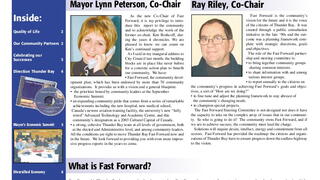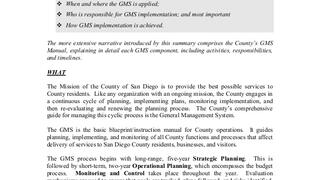Displaying 17326 - 17334 of 19326 results
How-to, Guide or Manual
Storage of ePHI on City Workstations and Laptop computers.
Organizational Policy
This ethics inquiry describes a situation in which the county manager was stunned to learn that the city’s police chief is spreading rumors about him.
Project / Research Report
This article provides an overview of different swimming pools owned by member governments.
Project / Research Report
This article highlights six snow removal innovations from cities across the country. Includes using different types of treatments, street improvements...
Project / Research Report
This document highlights fiscal impact studies as a means to answer questions pertaining to a new development's impact on existing municipal services, schools, and infrastructure.


